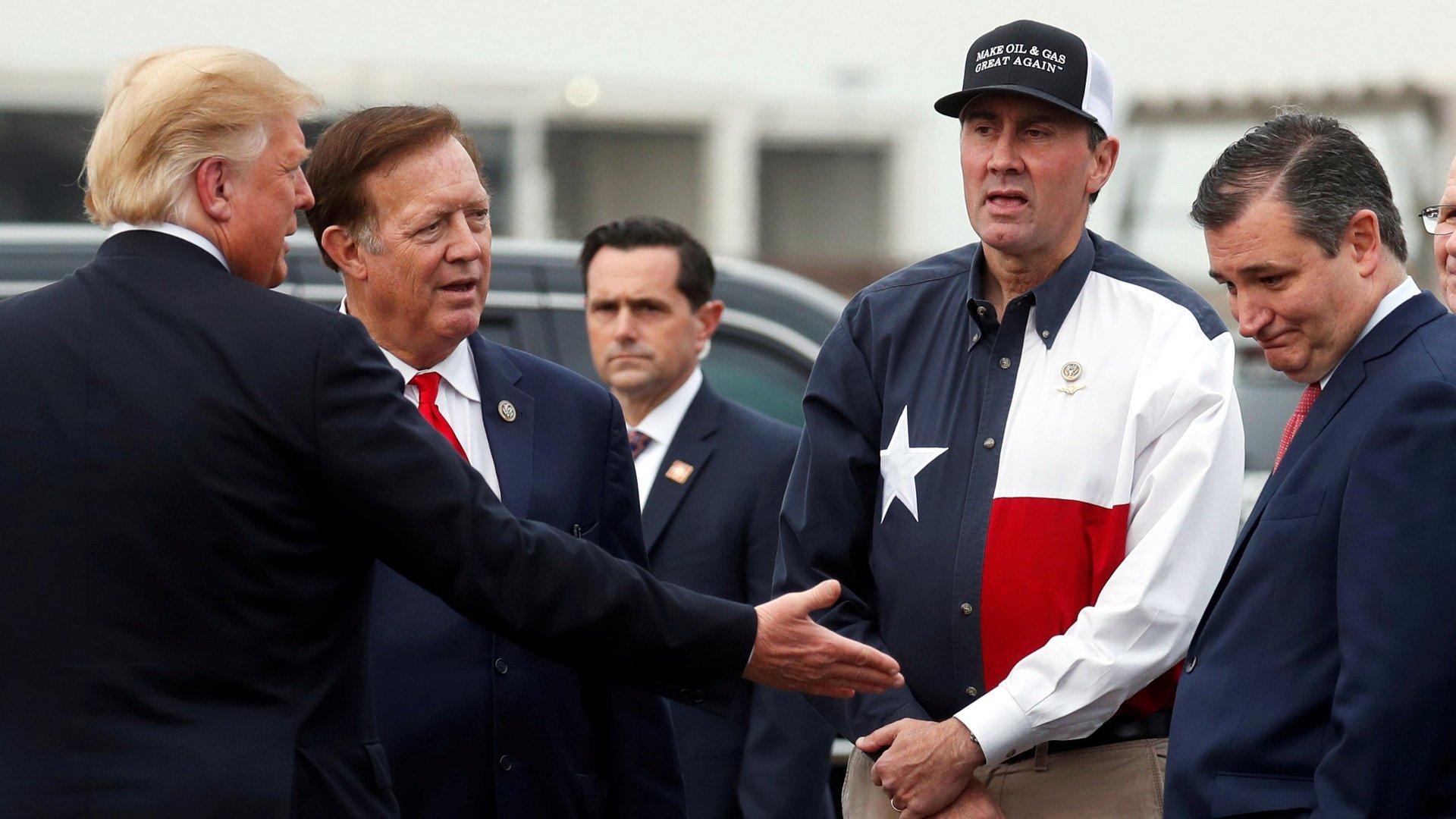Trump’s latest court battle explains the 2018 Republican campaign
There are plenty of grand theories of Donald Trump’s political strategy, but a new lawsuit accusing him of Mafia-style racketeering pins down a pattern of deception that will sound painfully familiar to political observers.


There are plenty of grand theories of Donald Trump’s political strategy, but a new lawsuit accusing him of Mafia-style racketeering pins down a pattern of deception that will sound painfully familiar to political observers.
Filed Oct. 30 by four anonymous plaintiffs in a New York City federal court, the suit alleges that Trump and his children knowingly convinced people to make investments that were never likely to succeed: In 2005, Trump partnered with a multi-level marketing company called ACN. MLM companies sell individuals the right to purchase goods for re-sale, with the expectation that they will recruit more distributors below them, who in turn will pay for the right to become distributors. Critics call this a pyramid scheme.
In exchange for millions of dollars in payments from ACN, Trump spent years convincing people to “invest” in their scheme by paying a $499 registration fee. Few ever made any money back, the suit alleges.
What is it about ACN?
ACN marketed a cheap videophone it bought in bulk from a failing manufacturer. The videophone required an internet connection—and could only be used with other ACN Videophones. At the time, Skype offered far cheaper prices on any computer, and could dial standard telephones. Nevertheless, Trump endorsed the videophones as a state-of-the-art, low-risk investment.
At one event, asked by an ACN founder “why do you keep coming back? What is it about ACN? Certainly not for any money,” Trump falsely replied, “No.”
In 2009, he opened his own MLM scheme, the Trump Network, by partnering with and re-branding an existing dietary supplements business. He hired an executive from ACN to lead strategy at the new firm, and promoted it to potential participants as “an exciting plan to opt-out of the recession.”
The results were much the same: People who believed Trump paid into the system and never recouped their “investment.” Plaintiffs are typically working-class people who took Trump at his word, sinking hundreds or thousands of dollars into dubious products.
These aren’t exactly new allegations; New York magazine tracked them in 2011 and the Wall Street Journal in 2015. What is notable is that the suit makes its case under the Racketeering Influence and Corrupt Organizations Act, a law created to fight the mafia by penalizing figures who organize and order crime without participating directly.
Because winning a civil RICO suit isn’t easy, and the action is being funded by a Democratic party donor, Republicans argue that it is simply resurfacing negative allegations against the president before the election.
A winning strategy
The portrait of the Trump Organization painted in the 164 page complaint is familiar: In 2017, after he was elected, he paid a $25 million settlement to students at “Trump University,” who alleged that Trump had falsely promised his paid seminars would deliver valuable insights on real estate investing.
Earlier month, ProPublica found the Trumps mis-representing both the quality of an investment and their compensation to promote it during the development of a hotel in Panama. And in 2012, the the Manhattan district attorney’s office investigated Trump’s children Ivanka and Donald Jr. for concealing poor sales at a development to avoid returning deposits to other investors.
Indeed, a New York Times investigation laid out a credible case that much of Trump’s fortune was inherited through fraudulent tax schemes that allowed him to avoid paying $500 million or more in taxes.
Again and again, Trump has been caught misrepresenting himself for his financial gain. But by the time journalists or victims establish what happened, he’s moved on, and rarely faces consequences.
In the political arena
This election season, Trump’s attempts to help his party win the House have come straight out of his racketeering playbook: Make any promises you need in order to win, while concealing your own compensation.
He has played up the threat of a group of refugees from central America moving through Mexico to seek asylum at the US border. There is little evidence that an unarmed group 1,000 miles from the US border, monitored daily by journalists and the Mexican government, provides any threat to the US. Trump similarly claimed that he would eliminate birthright citizenship—though that would require amending the constitution.
Trump has also taken to discussing a “10% middle class tax cut” that no Republican lawmaker had mentioned before. That’s likely because Congress enacted an enormous tax cut last year that Republicans have argued strenuously, and apparently not convincingly, is a middle-class tax cut.
Or consider his campaign to convince Americans that the Republican party will ensure that people with pre-existing conditions will be able to buy health insurance, even as his administration backs a lawsuit that would take that right away from consumers.
It would be one thing for Republicans to run on the tax bill they enacted, the Supreme Court justices they confirmed or the trade war they’ve launched against China. Instead, the campaign is focusing on fantasies of foreign invasion and tax cuts, and lying about healthcare policy.
Here, the Republican party is ACN, desperate to sell Videophones that don’t really work. Just as he did for ACN, Trump is telling Americans that they do work “and when you really believe in something, it’s very easy to give an endorsement. And I give my endorsement 100 percent.” If voters buy in, history suggests they won’t win out—but Trump will.